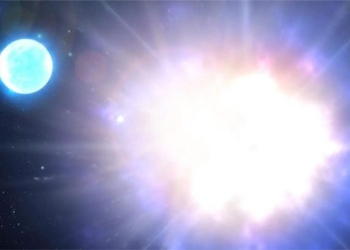 Europe is set to launch a spacecraft to Venus, the closest planet to Earth and a colossal greenhouse, often described as Earth’s “evil twin.”
Europe is set to launch a spacecraft to Venus, the closest planet to Earth and a colossal greenhouse, often described as Earth’s “evil twin.”
The Venus Express will be launched aboard a Russian Soyuz rocket from the Baikonur Cosmodrome in Kazakhstan on October 26. It will enter orbit around Venus next year and utilize scientific instruments to study the planet from above.
Venus has experienced a runaway greenhouse effect, leading experts to believe it could provide insights into Earth’s evolutionary processes.
On the surface, Venus and Earth appear similar, sharing comparable sizes, masses, and origins from the same gas cloud. However, the similarities end there. Surface temperatures on Venus can reach up to 460 degrees Celsius, and its dense atmosphere creates surface pressure akin to being several kilometers deep in Earth’s oceans.
The Venus Express will embark on the first exploration of Venus’s atmosphere, shedding light on how this planet has developed its hellish climate.
The clouds, which create acid rain, absorb less heat from the sun compared to Earth, even though it is the third planet closest to the sun. However, once absorbed, solar energy gets trapped in an atmosphere that is 96% carbon dioxide. This has led to an immediate greenhouse effect, with volcanic activity also contributing to the rapid warming of the climate.
“Venus has evolved in a completely different way than our planet,” said scientist Andrew Coates. “In some ways, it is Earth’s evil twin.”
The American Magellan spacecraft previously discovered extensive lava flows on Venus. “I believe Venus has very active volcanism, but we are still unsure,” said Professor Fred Taylor from the University of Oxford.
The European Space Agency’s (Esa) spacecraft will investigate this matter during a mission lasting two Venusian days, equivalent to 500 Earth days.
M.T. (according to BBC)





















































